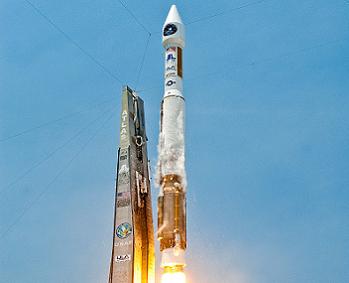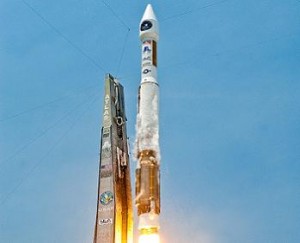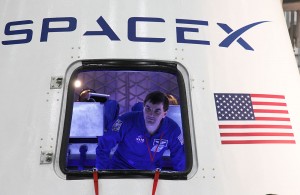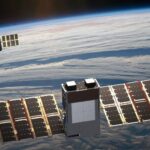May 16, 2014 – When Crimea’s President, Victor Yanukovych, fled to Russia in response to the uprising in Kyiv, Russian military forces used the ensuing crisis to destabilize and annex Crimea from Ukraine. The United States, Canada and the European Union responded with selective sanctions. Russia’s response has been sanctions in kind. But what about the International Space Station (ISS)? On board was a crew serving from May to September of this year, 2 Russians and an American commander with 3 more scheduled for launch on May 28, one an American, one a Russian, and one a German. When up to full compliment 3 Russians will be serving with 2 Americans and one German while below them on Earth their countries will be playing the tit for tat sanction game. It seems almost surreal and reminds me very much of the movie 2010: A Space Odyssey with a mixed crew serving on a Soviet spacecraft sent to find out what happened to an American one circling Jupiter. Politics on Earth interfered with the mission and it seems that life is about to imitate art on the ISS.
Dmitry Rogozin, Russia’s Deputy Prime Minister, made an announcement this week that its RD-180 and NK-33 rocket engines would no longer be exported to the United States for use on any military launchers. Rogozin stated “without guarantees that our engines are used only for launching non-military spacecraft, we won’t be able to deliver them to the U.S.”
These engines today are used in Atlas V rockets (seen below) and by Lockheed Martin, Boeing and the U.S. Defense Department. And Orbital Sciences, the private space company, is using a modified NK-33 engine, the Aerojet Rocketdyne AJ-26 for its Antares launch vehicle. All of these companies and the Defense Department will have to develop alternatives although the U.S. currently has a two-year inventory of RD-180 engines for Atlas V launches.
But even more problematic was the second announcement by Rogozin, ending cooperation with the U.S. after 2020 on ISS where today Russian rocket launchers provide primary crew access and resupply. If Russia is intending to abandon the ISS this puts the U.S. in what is best described as a real “pickle.” The publicly financed American space program under NASA is not building rockets to send astronauts to the ISS. Space Launch System (SLS) is meant for human flights to Deep Space with a planned asteroid rendezvous capture mission currently on the books.
This Rogozin announcement follows several others related to Russia’s ambitions in space which include: closer cooperation with China on future space missions and Russia’s plans to build a permanent lunar base by 2030.
The question for the moment then is how will the United States and other partners in the ISS respond? So far officials from the European Space Agency (ESA) and NASA are sticking with statements that point out Russia’s formal agreements for cooperation on access to the ISS. But agreements on paper may be no better than other guarantees by Russia such as their agreement not to violate the political integrity of neighboring states after the fall of the Soviet Union. Crimea is just the latest in a series of Russian moves on former Soviet Republics.
So what to do? With NASA going long and deep in its launch plans, the U.S. needs commercial U.S., European and other national suppliers who are ISS partners to fill in the gap by developing human space launch capability. Two private U.S. companies are already sending resupply mission to the ISS. ESA and JAXA (the Japanese space agency) also have launch capability for resupply. But at the moment, only SpaceX, Elon Musk’s company, is in a position to fast track its Falcon 9 and Falcon Heavy rockets, plus its Dragon capsule which is currently being adapted for human-crewed low-Earth orbit missions which would include trips to the ISS.
No surprise, SpaceX is primed and ready to take over the role currently handled by Russia’s Soyuz rocket and capsule technology. And the company is seeking a level playing field in space launch business for U.S. military payloads where currently Lockheed Martin and Boeing using Russian rocket engines have a monopoly. From SpaceX come these fighting words that suggest a new version of the Cold War space race is about to commence.
“As the U.S. contemplates additional sanctions against the Russian defense sector, it is incongruous and damaging that ULA [the launch company that currently has a monopoly on military space launches in the U.S. and that uses the RD-180 rocket engine made in Russia by a company controlled by its government] continues to send millions of dollars to Russian controlled entities to support U.S. national security. Given international events, this seems like the wrong time to send hundreds of millions of dollars to the Kremlin—especially considering there are domestic alternatives available and qualified to compete today that do not rely on components from countries that pose a national security risk.”





















